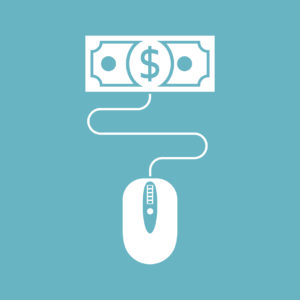** Auto Renewal Lawsuits – from the FTC, State Attorney Generals and Private Plaintiffs on the increase ** (more…)
Auto-Renewal Law
Online Subscriptions Require an Easy Out in California
** New Requirements under California’s Auto Renewal Law Requires Online Cancellation for Online Subscribers **
By: Brent E. Johnson

As we blogged about in the past, in 2010, California’s Automatic Purchase Renewal Statute (“CAPRS”) became effective for businesses offering automatic renewals or continuous service offers to California consumers. See Cal. Bus. & Prof. Code § 17602. The stated intent of CAPRS is to “end the practice of ongoing charging of consumer credit or debit cards or third party payment accounts without the consumers’ explicit consent for ongoing shipments of a product or ongoing deliveries of service.” Cal. Bus. & Prof. Code § 17600.
Almost half of US states now have similar laws on the books – some applying to all consumer contracts – others applying only to specific businesses such as gyms or security services. The common denominator amongst these state laws is a requirement to provide disclosure of auto renewal policies in a manner that is clear and conspicuous. See e.g., Connecticut (Conn. Gen. Stat. § 42-126b), Florida (Fla. Stat. § 501.165), Georgia (O.C.G.A. § 13-12-3), Illinois (815 ILCS 601/10), Louisiana (La. Rev. Stat. § 9:2716), Maryland (Md. Code Com. Law § 14-12B-06), New Hampshire (N.H. Rev. Stat. § 358-I:5), New York (N.Y. Gen. Oblig. Law § 5-903), North Carolina (N.C. Gen. Stat. § 75-41), Oregon (Or. Rev. Stat. §§ 646A.293, .295), Rhode Island (R.I. Gen. Laws § 6-13-14), South Carolina (S.C. Code § 44-79-60), South Dakota (S.D. Codified Laws § 49-31-116), Tennessee (Tenn. Code §§ 62-32-325, 47-18-505) and Utah (Utah Code § 15-10-201).
California’s law is among the strictest, requiring explicit consent before charging a consumer’s account for ongoing orders. As a remedy for violation, goods provided to a subscriber on an automatic basis without the required consent are deemed “unconditional gift[s]” (§ 17603) – i.e., “freebies.”
Although not particularly old, California’s law recently received an update– with new provisions going live July 1, 2018. The primary new provision is a requirement that accounts opened online must be permitted to be cancelled online. Cal. Bus. & Prof. Code § 17602 (c) (“A consumer who accepts an automatic renewal or continuous service offer online shall be allowed to terminate the automatic renewal or continuous service exclusively online.”) No more cumbersome phone calls to customer service agents to cancel accounts. The makeover of California’s law also extends its application to free or discounted trial periods. A cancellation notification must be given prior to the end of this period giving the consumer information on how to cancel prior to being charged the new or non-discounted price. § 17602 (a)(3).
Failure to comply with auto renewals laws has exposed a wide variety of companies to class action complaints (mainly in California under CAPRS). Vemma Nutrition; Spotify; Dropbox; Tinder; LifeLock; Birchbox; Google and Apple have all been sued. Courts are clear that CAPRS does not have an intrinsic private right of action – but that a violation would be an “unlawful” business practice under California’s Unfair Competition Law (UCL) (Cal. Bus. & Prof. Code § 17200). Johnson v. Pluralsight, LLC, No. 17-15374, 2018 WL 1531067 (9th Cir. Mar. 29, 2018). And as for a remedy under the UCL, failure to honor the “free gift” provision of § 17603 was deemed to be a sufficient allegation to warrant restitution. Id. at * 2.
Companies should take steps to comply with CAPRS and similar laws by:
- Making sure the auto renewal terms are stated clearly and conspicuously – and making sure the terms comprehensively describe the offering, price, frequency of charges and length of minimum terms.
- Having a process to obtain the consumer’s affirmative consent before he or she is charged and providing a mechanism to cancel online, if the subscription is created online.
- Confirming the terms with a notice (such as by email) that includes all relevant offer terms and the cancellation policy prior to the first payment or increase in promotional prices.
That Settling Feeling – Private Settlement of Auto-Renewal Cases in California

**Many high profile companies have had California Bus. & Prof. Code § 17600 Auto Renewal cases bought against them recently – from Spotify to Tinder – the trend among these companies has been to settle – and settle privately**
By: Brent E. Johnson
In December 2010, California entered into effect its Auto-Renewal Law (“ARL”) (California Bus. & Prof. Code § 17600 et seq) intended to protect consumers from unwanted charges for ongoing subscription fees, i.e. such as those used by online subscription services. The law does not outlaw the practice of auto-renewal altogether, however it creates an onus on subscription services to present auto-renew terms in a “clear and conspicuous manner”; to obtain affirmative consent to payment terms; and to provide an easy-to-use mechanism for cancelation. See § 17602. The ARL creates a novel (and as yet judicially untested): if the consumer doesn’t give the affirmative consent required by the statute, the “the goods, wares, merchandise, or products shall for all purposes be deemed an unconditional gift . . . .” See § 17603. With the popularity of the subscription service business model in the new economy, it was probably inevitable that Plaintiff lawyers would pick up on this law as a basis for purported consumer class action suits. As listed below, most of the big name online subscription companies – in media, data, shopping and dating – have been targeted. The majority response to date, has been to settle – quickly and privately.
- In Vemma Nutrition’s case (D. Cal Case No. 3:13CV02731) the ARL complaint was filed 11/14/2013 and on 5/20/2014 a joint motion to dismiss under Rule 41 ended the case.
- As to Spotify the case against it initially bought in the Superior Court, San Francisco County CGC-13-535309 was removed to Federal Court. (N.D. Cal) 3:13-cv-05653-CRB on 12/6/2013 and on 7/16/2014 a joint motion to dismiss under Rule 41 was filed.
- With Dropbox the case filed Superior Court, San Francisco County, No. CGC-14-537731 was removed to Federal Court. (N.D. Cal) 3:14-cv-01453-CRB on 3/28/2015 and on 6/27/2014 a stipulated dismissal
- In the case filed against Tinder (C. D. Cal. Case No. 2:15-cv-03175) in response to the Complaint filed 4/28/2015, the matter was voluntarily dismissed on 7/21/15
- For Defendants American Automobile Association (D. Cal. Case No. 3:15-cv-00246) with respect to the complaint filed 2/6/2015 the matter was voluntarily dismissed on 3/23/15.
- LifeLock’s case filed 2/2/2015 (D. Cal. Case No. 3:15-cv-00220) was voluntarily dismissed 5/11/15.
- As to Blizzard Entertainment (D. Cal. Case No. 3:15-cv-00230) the complaint filed 2/5/2015 was voluntarily dismissed on 8/3/2015
- The Birchbox case (S.D. Cal. Case No. 3:15-cv-00498) is currently stayed pending mediation.
The trend here is, first, get out of state court! California state rules mandate judicial approval (and thus public disclosure) of the private settlement of a purported class action – even in its pre-certification infancy. Cal. Rules of Court S 3.770; see Cal. Prac. Guide Civ. Pro. Ch. 14-C, Cal. Civ. Prac. Procedure § 32:18, see discussion Pirjada v. Superior Court, 134 Cal. Rptr. 3d 74, 81-82 (Cal. Ct. App. 2011). This generally prevents a truly confidential settlement. However, in Federal Court, only a certified class settlement needs court approval. See Rule 23(e); Eckert v. Equitable Life Assurance Soc’y, 227 F.R.D. 60, 62 (E.D.N.Y. 2005); see also Wasserman, Secret Class Action Settlements, 31 Rev. Litig. 889, 901 (2012). And if the parties can agree prior to an Answer being filed – all the better – the dismissal itself does not need court approval. Rule 41(a)(1)(A)(i); Commercial Space Mgmt. Co., Inc. v. Boeing Co., Inc., 193 F.3d 1074, 1077 (9th Cir. 1999); Bailey v. Shell W. E&P, Inc., 609 F.3d 710, 719 (5th Cir. 2010). The second trend here is obvious – early – private settlement.
That’s not to say that Defendants are not coming out swinging. One litigation trend is for Defendants to use the arbitration provision in their terms and conditions to force the case out of court. In this vein Guthy-Renker’s case in Superior Court, Los Angeles County BC499558, the defense has moved to compel arbitration – a hearing on the motion to compel is 10/19/2015. In the case of Hulu, Superior Court, Los Angeles County BC540053 on 8/11/2015 the court entered an order to compel arbitration – this is currently under appeal.
Not surprisingly behemoths Google and Apple have also both been sued under the ARL. Neither seem content to settle and are both actively defending the cases. See Mayron v. Google, Inc., Superior Court, Santa Clara County 1-15-CV-275940 demurrer filed 7/20/2015, hearing scheduled for December 4, 2015; see also Siciano v. Apple, Superior Court, Santa Clara County 1-13-CV-257676 on 4/20/2015 the Court overruled Apple’s demurrer and the case is set for case management conference on November 13, 2015.

